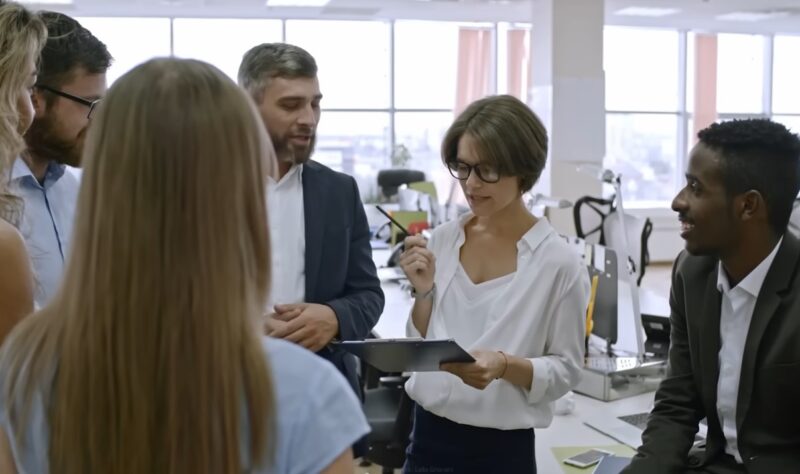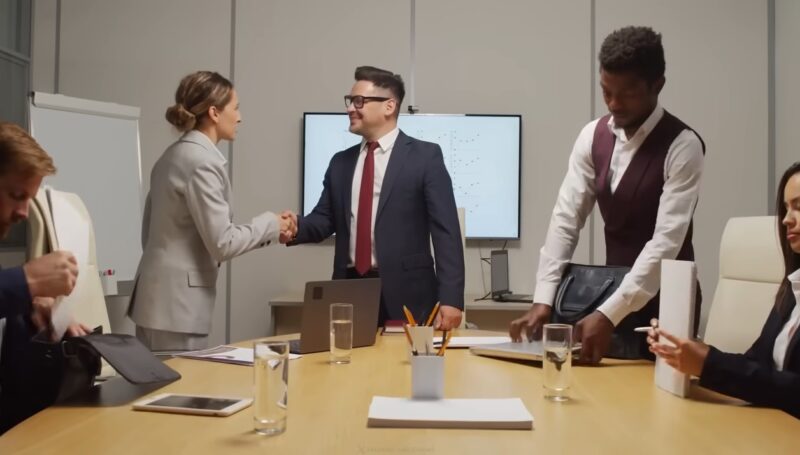In job interviews, there’s a common question that goes, “What’s your biggest weakness?” It’s like a test all of us have to face. Some may find it overused, but it actually matters a lot as it shows how well you know yourself.
But how can you honestly answer this question and leave a good impression? Here are seven thoughtful responses that not only show self-awareness but also personal growth. These answers are made to suit different people and work situations, giving you a helpful guide for tackling this tricky interview question.
1. The Perfectionist
Perfectionism is often the go-to “safe” answer, but it’s important to frame it in a manner that doesn’t seem cliché. Portraying this trait as a challenge rather than a thinly veiled brag can help your interviewer see a realistic side of you that strives for quality but recognizes the necessity for balance.
Balancing Precision
“I tend to lean towards perfectionism, taking meticulous care in my work and often investing extra hours to ensure that everything is just right. While this has ensured high-quality outputs in my previous roles, producing work that I could be proud of, I’ve realized it sometimes led to undue stress or over-extended timelines.
It has sometimes caused minor delays or even conflicts with colleagues who may not share the same level of exactness.”
The Growth Curve
“Recognizing this, I’ve been working on striking a balance between quality and efficiency. I’ve engaged in time management workshops and sought mentorship from seasoned colleagues to learn to differentiate between perfection and excellence.
By setting realistic standards and prioritizing tasks, I’m learning to deliver excellent work within feasible timelines, without compromising the standard that I set for myself.”
2. Over-commitment

Taking on too much can be both a boon and a bane. Over-commitment reflects a desire to excel and contribute but needs to be presented in a way that highlights a thoughtful understanding of your limitations. Here’s a way to frame over-commitment as a point of personal development.
Delivering with enthusiasm
“In my enthusiasm to help and contribute, I often find myself over-committing. This means I sometimes stretch myself thin, trying to juggle multiple tasks, sometimes leading to burnout. I realize that while my intentions are in the right place, this tendency can affect the quality of my work and my overall well-being.”
Using the Energy
“To manage this, I’ve started using project management tools, created self-imposed guidelines, and regularly consulted with my team to gauge capacity.
This new approach helps me assess my abilities better and delegate effectively, ensuring that I don’t bite off more than I can chew. It’s a learning process that’s making me more mindful of both my strengths and limitations.”
3. Impatience
Impatience indicates a drive for results but needs to be tempered with patience for process and people. Expressing an understanding of why patience is vital and what you’re doing to cultivate it can show a mature and thoughtful mindset.
Fast Outcomes
“I’m driven by results, which sometimes makes me impatient. I’ve often desired to see immediate outcomes, especially when I know the potential of a project. This eagerness, while energizing, has sometimes caused friction with colleagues or led me to overlook important details.”
Waiting is Wise
“However, I’ve come to understand the importance of processes and pacing. Engaging with mentors and reflecting on past experiences, I’ve learned that it’s essential to give ideas the time they need to germinate and respect everyone’s workflow. I’m actively working on cultivating patience, recognizing that good things often take time.”
4. Overthinking

While deep analysis can be beneficial, overthinking can sometimes hinder decision-making. Portraying this as a trait you recognize and are working on can help present a well-rounded picture of you.
The Maze of Thoughts
“I tend to analyze situations deeply, scrutinizing every possible outcome, which, on occasion, leads me to overthink. This could slow down decision-making or lead to unnecessary worry. Although it’s a sign of my analytical nature, I know that it can become a barrier to efficient and decisive action.”
Channeling the Thought Process
“Recognizing this tendency, I’ve been practicing mindfulness techniques and employing decision-making frameworks to guide my thoughts productively. By setting clear guidelines and learning to trust my intuition, I’m acting more decisively, without losing my ability to think critically.”
5. Seeking Feedback Constantly
Continuous feedback is crucial, but there’s a fine line between ensuring quality and becoming overly reliant on external validation. Expressing how you have worked to find this balance can present a picture of a continually evolving professional.
The Validation Quest
“I value feedback and often seek it out to ensure I’m on the right track. In my quest for continuous improvement, I’ve noticed that I sometimes seek validation more than necessary, leading me to question my own judgments unnecessarily.”
Trusting One’s Judgement
“To combat this, I’ve been working on building confidence in my skills and decisions. Engaging in self-reflection and setting personal benchmarks has helped me trust my expertise more. While feedback remains invaluable, I’m learning to balance it with trust in my abilities and insights.”
6. Reluctance to Delegate

Delegating tasks showcases trust in your team, but some struggle with letting go. Articulating how you’ve grown in this area can create an image of a team player who values collaboration, especially when it comes to temporary staff.
Being too controlling with the reins
“Earlier in my career, I found it challenging to delegate tasks. I felt that doing things myself ensured accuracy and quality, but I’ve since realized that this approach can hinder team growth and slow down processes. It was a control issue that I needed to address.”
Team Trust
“With experience, I’ve learned the importance of delegation for team growth and efficient project management. By attending leadership workshops and observing successful managers, I’m now more adept at trusting my team, leveraging everyone’s strengths, and realizing the power of collaborative effort.”
7. Avoiding Confrontation
Not everyone is comfortable with confrontations, but addressing this can signify personal growth and understanding. Explaining how you have actively worked to overcome this trait can show a commitment to healthy relationships and clear communication.
Choosing the easiest way
“I used to avoid confrontations, preferring to keep the peace even if it meant not addressing underlying issues. This avoidance sometimes led to unresolved conflicts or stress within the team, affecting the overall work environment.”
Dealing with the consequences
“However, I’ve learned that constructive confrontations can lead to breakthroughs and foster understanding. By attending communication workshops and seeking guidance from mentors, I’m continuously working on my ability to address issues head-on, ensuring a healthy work environment that values open and honest communication.”
FAQs

Is it acceptable to use the same weakness in different interviews with various companies?
It’s best to tailor your responses to each interview and the company’s specific needs, but you can address the same fault if it remains relevant.
Should I practice my response to this question before the interview?
Absolutely! Practicing your response will help you deliver a confident and articulate answer during the actual interview.
Can I discuss a trait that stems from a previous job experience?
Yes, but be cautious not to speak negatively about your former employer. Focus on how you’ve grown since then.
Should I mention a weakness that’s related to a skill the company prioritizes in its job description?
It’s not ideal, but if necessary, use this opportunity to showcase your determination to improve in that particular skill.
Can I use a trait that’s common among candidates as a response?
Avoid using clichés and generic weaknesses. Be authentic and provide specific insights into your development areas.
Conclusion
Crafting a response that is both genuine and puts you in a positive light might seem daunting, but with introspection and a focus on growth, it becomes an opportunity to showcase your evolution. Everyone has weaknesses; it’s how you address and grow from them that sets you apart.
If you do it right, they can become your best friend in this case. By demonstrating self-awareness, vulnerability, and a commitment to personal growth and productivity, you’ll be well on your way to turning this traditionally challenging question into a chance to shine.

